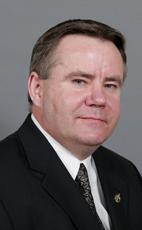Mr. Speaker, I appreciate the opportunity to raise the question of Kitchenuhmaykoosib Inninuwug in the House. Early in April, I had the opportunity to raise this question. It is quite unique that on the eve of the apology, I get another opportunity to bring this up.
What brought us to the point of taking the entire leadership of the community of Kitchenuhmaykoosib Inninuwug, English name of Big Trout, and the short form name of KI, to jail: Chief Donnie Morris, Deputy Chief Jack McKay, head Councillor Cecilia Begg, Councillors Sam McKay and Darryl Sainnawap, and band member Bruce Sakakeep?
These people were all standing up for their communities. They are elected members of the communities and they have the confidence of the communities. They are leaders of long-standing. These individuals have done very well in the community and they are very respected. Another aspect of this is they are also leaders in northern Ontario. They are leaders in the area where there are large fly-in communities.
Chief Morris has been elected many times. He has given strong leadership. He has been the political chief for many organizations, including SLAAMB, Sioux Lookout Area Aboriginal Management Board.
Many residents in northern Ontario want answers and they want leadership. They do not want these things to be put off to the province.
Grand Chief Stan Beardy and all the Nishnawbe Aski Nation wanted to know what the federal Minister of Indian Affairs and Northern Development would do to resolve this dispute. More than two months after the fact, we know what he did. He did nothing. Blaming other jurisdictions does not build confidence.
It has been more than two months, with no elected leadership in the community, no leadership from the minister and no leadership from the government, and no answers in the House. Regardless that this is a provincial issue, it is the federal government that signed the treaties. We look to the Minister of Indian Affairs and Northern Development for support and resources.
How did Kitchenuhmaykoosib Inninuwug peoples do during this time? I am happy to say that, with the strength of the elders and community members, they did quite well. They are a very proud community, living in a very challenging environment. It is a fly-in community with no access by road and only ice roads which are temperamental at best. However, they looked after each other as they always do in the north.
Donnie Morris and the rest of the leadership are back home now. The judge was satisfied with time served, but first nations communities are not. They have questions. Will the federal government support their fight for treaty rights and traditional land uses? Will it show leadership by meeting with KI and the community? Will it support the community, which has fought a long legal battle and is really out of money? Will it support the community by informing everyone about the situation in KI?
The community has requested a delegation from the United Nations to visit their community and their traditional lands. We are told from the chief, as late as yesterday, that this permission has to come from the federal government. Some 80 delegates or politicians want the opportunity to visit KI. They want to help the world and the United Nations understand the challenges faced by Canada's aboriginal peoples. KI has been told by the bureaucracy that the government has to give permission.
When will the government give its permission? When will the government allow the world to come and visit northwestern Ontario and try to understand the challenges faced by the aboriginal people of Canada? There is a lot of opportunity to actually participate. There is a lot of opportunity for the minister to come to the community.
People in northern Ontario, people in Nishnawbe Aski Nation all want answers and they want to know they have the support of the government. Again, will the government allow permission for the United Nations to visit Kitchenuhmaykoosib Inninuwug in northern Ontario?

